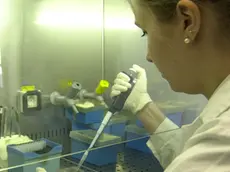Terremoto al VIMM, la lettera integrale che il comitato scientifico ha scritto contro Pandolfi
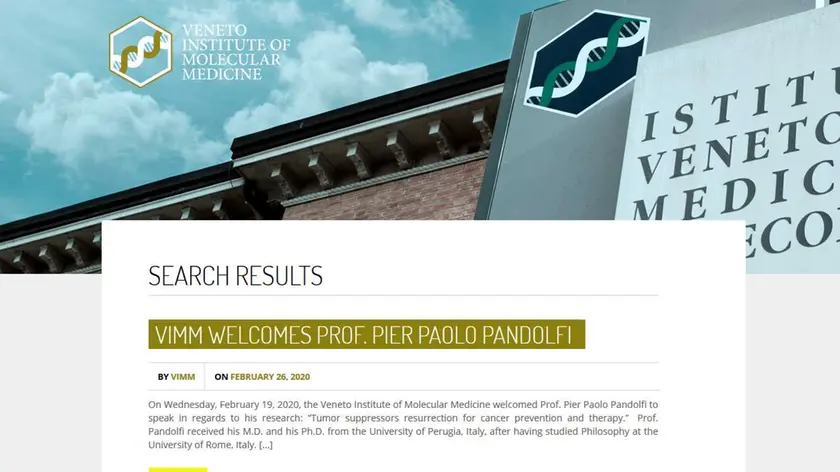
PADOVA. L’intero comitato scientifico internazionale del Vimm ha annunciato le dimissioni in polemica con la nomina di Pier Paolo Pandolfi (foto sotto) a nuovo direttore scientifico dell’istituto d’eccellenza che si occupa di ricerca in biologia cellulare e molecolare.
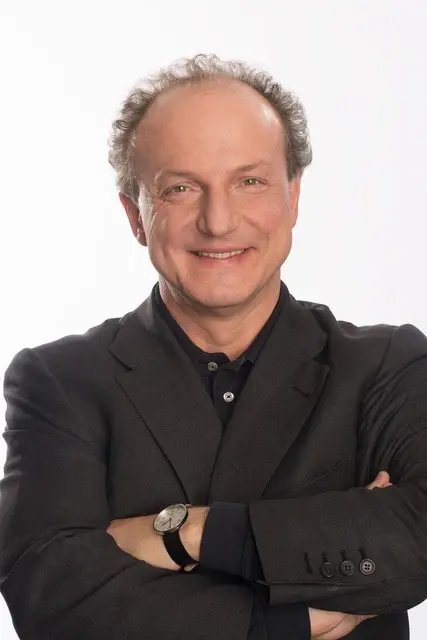
Un gesto plateale, fragoroso da parte di tanti esponenti del gotha mondiale della ricerca medica, che rende pubblico un malumore presente da settimane per la designazione assunta dal presidente della Fondazione, il professor Francesco Pagano. L’annuncio delle dimissioni in massa è arrivato ieri con una lettera del presidente dello scientific advisory board Wolfgang Baumeister, biologo tedesco direttore del Max Planck Institute.
Nell'articolo qui sotto, la spiegazione del terremoto
La lettera scritta in inglese da Neubauer a Pagano
Dear Professor Pagano,
I wrote to you on May 22nd in my role as the chair of the Scientific Advisory Board (SAB) of the VIMM to express our concerns about the developments at the institute and our frustration to learn about the appointment of a new director only through the media. The SAB was neither consulted nor officially informed. In your response of May 25th, which its tone was insulting and in parts factually flawed, you tried to brush our concerns away. I urged you to take a closer look into the circumstances that led to Pier Paolo Pandolfi's departure from Harvard Medical School and the Beth Israel Deaconess Medical Center but you obviously preferred to ignore this.
In the meantime, we have received additional information about the procedure that led to the ousting of Luca Scorrano as the VIMM's Scientific Director and the appointment of Pier Paolo Pandolfi as his successor. A letter signed by eight senior PIs of the VIMM, which I received on June 16th gives a detailed account of the events that led to the appointment of Pandolfi and expressed very clearly that the PIs were neither properly informed nor consulted.
They are convinced that the 'severe procedural flaws in a matter of such relevance nullify the validity of the decision taken by the Board of Trustees about the appointment of the new Scientific Director'. In the letter you sent to the SAB members yesterday, you tried to give us the impression the PIs were in support of the developments and the appointment of Pandolfi. This is simply not the case and we fear that several PIs, amongst them the scientifically best, will sooner or later give up on the VIMM and leave. This is the more deplorable as the SAB regards the VIMM as being on a promising path.
You must also be aware of the fact that the events at the VIMM have attracted the attention of several science journalists now doing their own investigations. Thus it seems inevitable that things become public doing serious damage to the reputation of the VIMM but also to the University of Padova. The problems cannot be kept below the carpet. Can a big scandal still be avoided?
Possibly by rescinding the decision, as also suggested by the PIs, and by paving the way for a transparent search and recruitment procedure for a new director. It is our hope that the University of Padova sends out a strong signal by distancing itself from the decision of the 'Fondazione Biomedica Avanzata Onlus' and supports such a process.
Yesterday, I sent an email to all active SAB members, i.e. those members who at least once participated in site visits, announcing my resignation as the chair of the VIMM's SAB. Within a few hours all of them responded and said they wish to follow me. This means the SAB resigns collectively. I also attach their responses and hope you will listen to what they had to say (attachment).
Finally, I wish to urge the Fondazione and its Board of Trustees to reconsider its style of governance and to interfere less with the operations at the VIMM. You, Professor Pagano should consider assuming an emeritus status. It cannot be in your interest to destroy the VIMM you once helped to create.
On behalf of the Scientific Advisory Board
Prof. Dr. Dr. hc. Wolfgang Baumeister
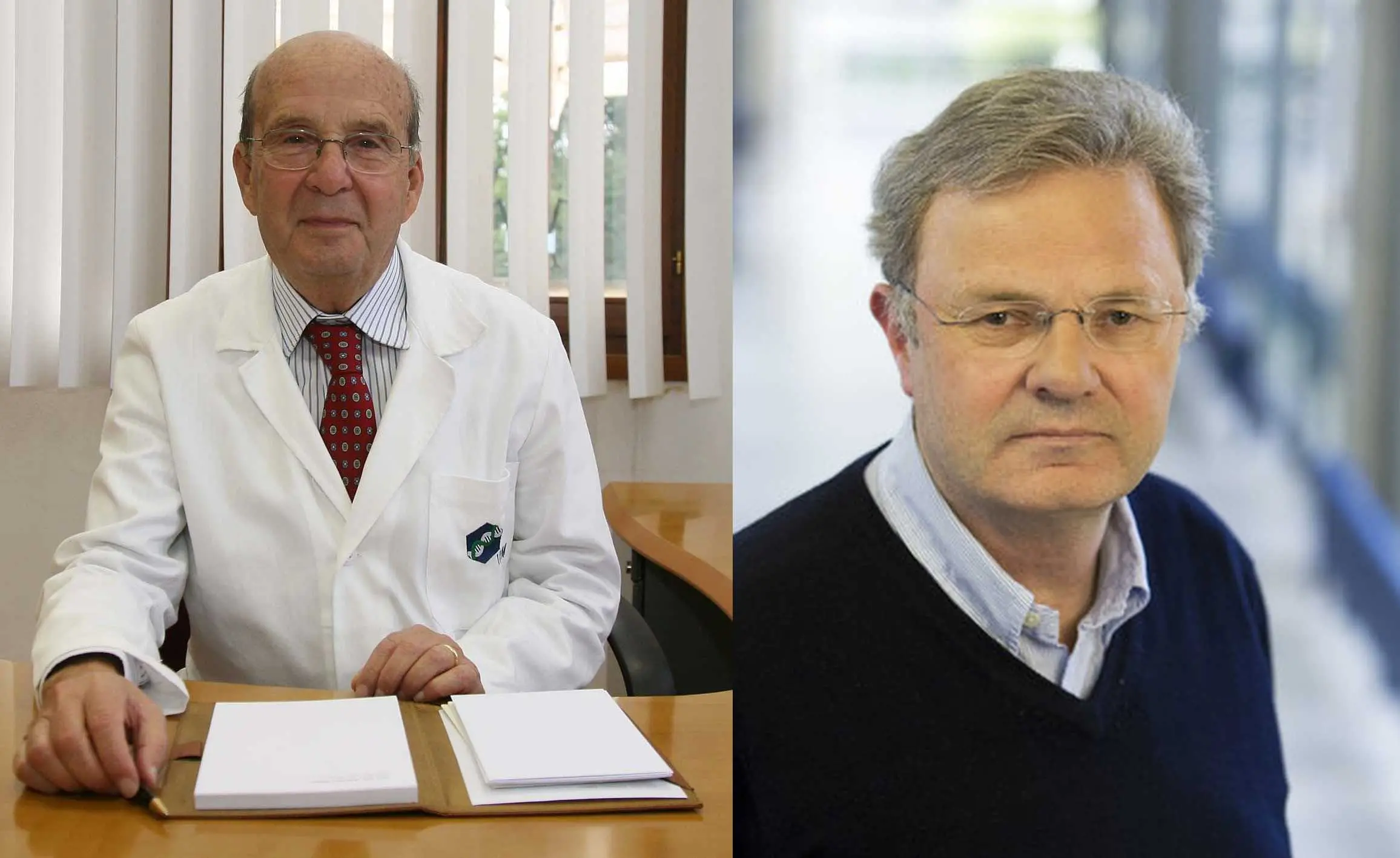
***
Il professor Pagano, avvicinato dai giornalisti in occasione della visita ufficiale da parte della presidente del Senato Casellati, ha difeso strenuamente la scelta di Pandolfi, rintuzzando con grande forza verbale alla posizione del comitato scientifico dimissionario. Ecco le sue dichiarazioni
***
Il board scientifico del Vimm è di altissimo livello, ecco chi ne fa parte
Members of the current Board:
Wolfgang Baumeister
Max-Planck-Institute for Biochemistry
Martinsried, Germany
Sir Michael Berridge
Babraham Institute
Cambridge, United Kingdom
Aaron Ciechanover
Israel Institute of Technology
Haifa, Israel
Pascale Cossart
Cell Biology and Infection, Pasteur Institute
Paris, France
Evangelia Kranias
Department of Pharmacology & Cell Biophysics – Cardiovascular Center of Excellence
Cincinnati, Ohio
Jean-Pierre Changeux
Pasteur Institute
Paris, France
Norbert Perrimon
Department of Genetics, Harvard Medical School
Boston, MA
Tobias Bonhoeffer
Director at the Max Planck Institute of Neurobiology
Martinsried, Germany
Nikolaus Pfanner
Institute of Biochemistry and Molecular Biology
Frieburg, Germany
Junichi Sadoshima
Department of Cell Biology and Molecular Medicine at Rutgers University
Newark, NJ
Carlos A. Martinez
Immunology & Oncology, National Center for Biotechnology
Madrid, Spain
Bert Sakmann
Max Planck Institut für Neurobiologie
Martinsried, Germany
Yosef Yarden
Weizmann Institute of Science
Rehovot, Israel
David M. Sabatini
Whitehead Institute
Massachusetts Institute of Technology
Cosa è il VIMM
La Fondazione Ricerca Biomedica Avanzata Onlus, presieduta dal Prof. Francesco Pagano, è nata a Padova nel 1996 con lo scopo di promuovere e realizzare progetti e attività di ricerca scientifica nel contesto universitario e sanitario del Nord Est.
La Fondazione oggi rappresenta uno dei poli d’eccellenza a livello internazionale per le ricerche svolte nel campo della biologia cellulare e molecolare. Inoltre, grazie ad un’attenta attività di partnership con l’Università di Padova, l’Azienda Ospedaliera e con le eccellenze private locali, la Fondazione si propone di essere un motore di crescita scientifica, culturale, economica e sociale per il territorio.
Il filo conduttore dei progetti di ricerca è lo studio dei segnali cellulari (signalling). Comprendere i meccanismi attraverso i quali le cellule comunicano tra loro è di primaria importanza per conoscere le cause di molte malattie oggi incurabili e mettere quindi a punto nuove strategie terapeutiche. I ricercatori hanno il compito di coniugare la ricerca di base (in biologia cellulare, molecolare e strutturale) con quella clinica, secondo il binomio comunemente definito come ricerca traslazionale. Lo stretto legame di questi due ambiti di ricerca è strategico per poter trasferire rapidamente sui pazienti i risultati delle ricerche.
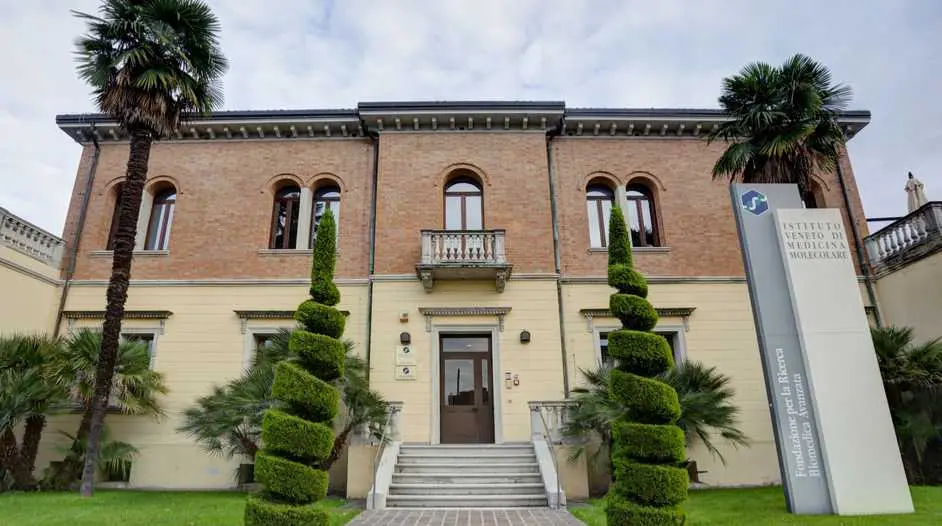
La Fondazione Ricerca Biomedica è nata per sostenere il V.I.M.M, l’Istituto Veneto di Medicina Molecolare, rappresentato dai suoi 150 ricercatori suddivisi in 15 gruppi di ricerca coordinati dal Direttore Scientifico Prof. Luca Scorrano.
"Nel nostro centro di ricerca - si legge sul sito - sono impegnati circa 150 ricercatori provenienti dall’Italia ma anche, per il 25%, da tutto il resto del mondo, Cina e Giappone compresi.
"Suddivisi in 17 gruppi di ricerca, sostanzialmente riguardanti il muscolo, il cuore, la cardiochirurgia, il diabete, la bioingegneria, i nostri ricercatori sono medici, ingegneri, biologi, chimici, informatici, con età media al di sotto dei 40 anni. Molti di questi, rientrati dall’estero, sono riusciti ad avviare delle ricerche di altissimo livello attirando fondi sia dagli Stati Uniti sia dalla Comunità Europea.
"I giovani studiosi scelgono il nostro centro perché qui trovano la disponibilità di strumentazione di altissimo livello e l’osmosi con altri ricercatori, quella trasversalità di competenze che è la via migliore per raggiungere traguardi importanti.
"Per garantire la qualità dei progetti è stato costituito un rigoroso sistema di valutazione: un Comitato Scientifico Internazionale, che include tra gli altri due premi Nobel, ogni 2 anni visita il centro, intervista tutti i ricercatori ed esprime un giudizio su ogni singolo programma di ricerca.
Riproduzione riservata © Il Mattino di Padova

